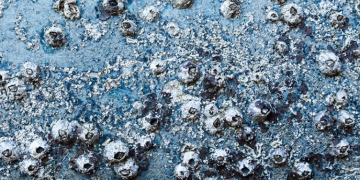A consortium of four Belgian industrial players – Prefer, Fluxys Belgium, Lhoist and Orbix – have joined forces to help decarbonise Belgian industry and provide a sustainable solution for the construction sector.
They have now been selected by an European innovation fund (Innovation Fund Small Scale) and will receive a €4.5 million grant.
The CO2ncrEAT project was born out of carbonation technology developed by Orbix that enables a path for the sustainable re-use of certain steel industry co-products. The technology involves triggering a reaction between these materials and CO2 in the manufacture of construction elements.
One thing leading to another, Prefer, Fluxys Belgium, Lhoist and Orbix joined forces to deploy this “CO2 eating project” (CO2ncrEAT).
Reducing CO2 emissions is the project’s key objective. Every year nearly 12,000 tonnes of CO2 will be captured, transported and reused in masonry blocks instead of being emitted into the atmosphere.
In addition, the raw materials used to produce the blocks will be CO2 and recycled co-products from the steel industry, thereby preventing an additional 8,000 tonnes of CO2 emissions.
Another driver is the need to offer the construction sector innovative and environmentally friendly products. Starting in 2025 and thanks to CO2ncrEAT, it will bring to the market masonry blocks with a negative CO2 footprint.
These blocks will sequester more CO2 than it takes to produce them. The blocks produced this way will be distributed as a replacement for conventional concrete blocks.
Thus, in line with demand from the construction market, the processes will remain the same while the materials will have a positive environmental impact.
This project also combines multiple technologies to capture CO2 directly from industrial fumes and reuse it in building materials, on a large scale. It is also being deployed rapidly compared to other CO2 sequestration projects in Europe.
In conjunction with the EU Innovation Fund, Prefer, Fluxys Belgium, Lhoist and Orbix will invest in the Lhoist site in Saint-Georges-sur-Meuse and the Prefer site in Hermalle-sous-Huy to set up the infrastructure needed for the project.
In addition to its positive impact on the environment, CO2ncrEAT will ensure their business activities are firmly rooted locally and will pioneer the deployment of CO2 capture and reuse technology in Europe.
Through the CO2ncrEAT project, our masonry blocks will be made of circular and local raw materials, making our production process sustainable and considerably efficient. The Prefer block of tomorrow will keep all the advantages of the traditional block with the difference that it will benefit from a negative carbon footprint
Raphaël Grimont, CEO of the Prefer Group, said.



























































